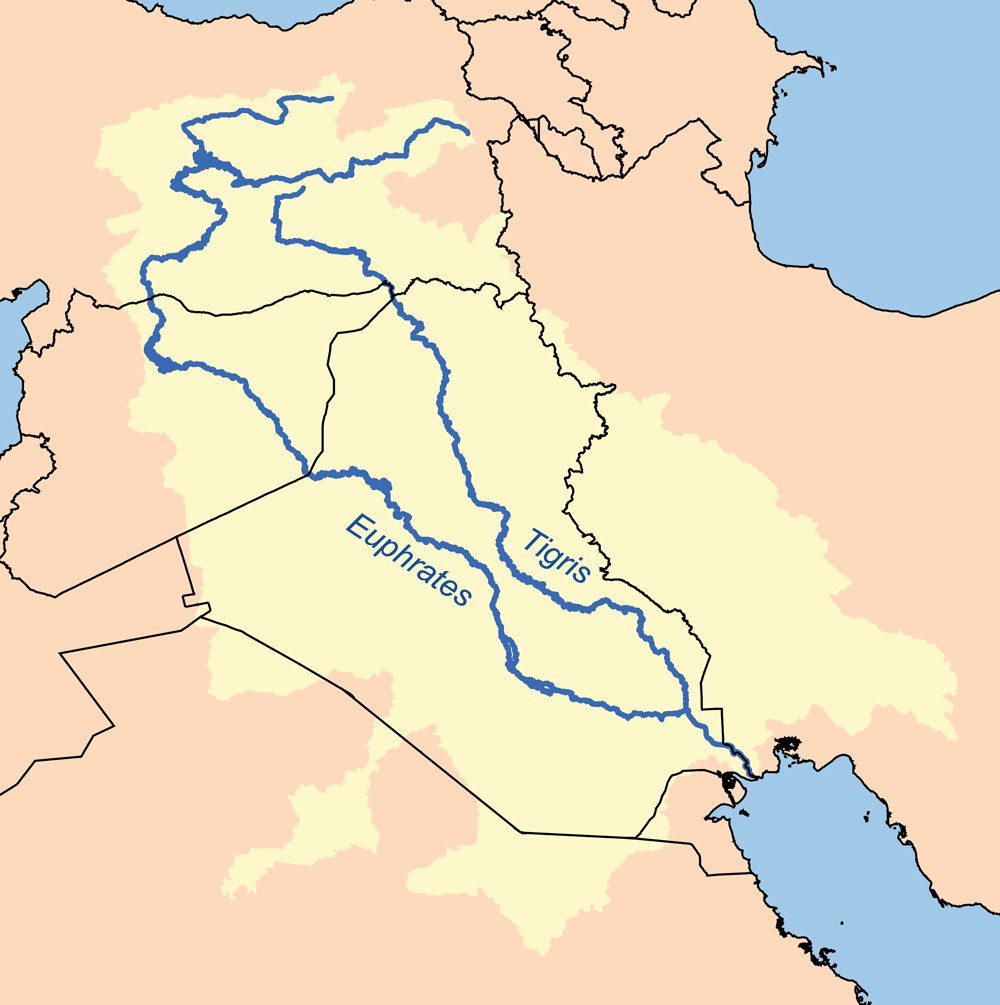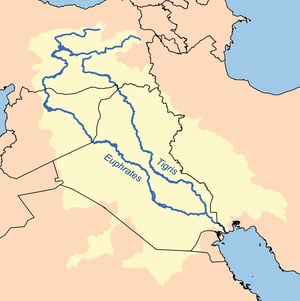
Water crisis in the Middle East
Hannah Lynch has written an excellent article on the water crisis in the Middle East.
 She notes that water is scarce in the area in any event, and that climate change is making this worse.
She notes that water is scarce in the area in any event, and that climate change is making this worse.
She references mass migration and urbanisation, like in Syria where 1.5 million people moved from the countryside to the cities by the late 2000s.
But the main thrust of her commentary is that for centuries politics and conflict have created problems.
Hannah takes us right back to the Sumerian city states of Lagash and Umma who had a long-running dispute over farmland on the banks of the Tigris River in the 25th century BC. Umma kept failing to pay rent for the land it used and Lagash retaliated by diverting water upstream. This led to a conflict which was eventually resolved by what is believed to be the first water agreement ever signed, indeed perhaps the first treaty of any kind.
Maybe it is time for another multi-lateral agreement to assure the future of water in the region. Several countries share just two major rivers: the Euphrates and the Tigris. Trans-boundary water is governed by the UN Watercourses Convention of 1997 under which nations are obliged to respect and share equitably their neighbours’ water resources. Syria and Iraq are 2 of only 39 signatories to the agreement. Turkey and Iran are not amongst them. And although Iraq, Turkey, and Syria have made bilateral deals on sharing water, there is no final agreement between all three on their shared rivers. They routinely blame each other therefore for their water problems.
In the meantime, there are i2O solutions to ensure that water lost through distribution is minimised.
Tags: Blog, i2O, Middle East